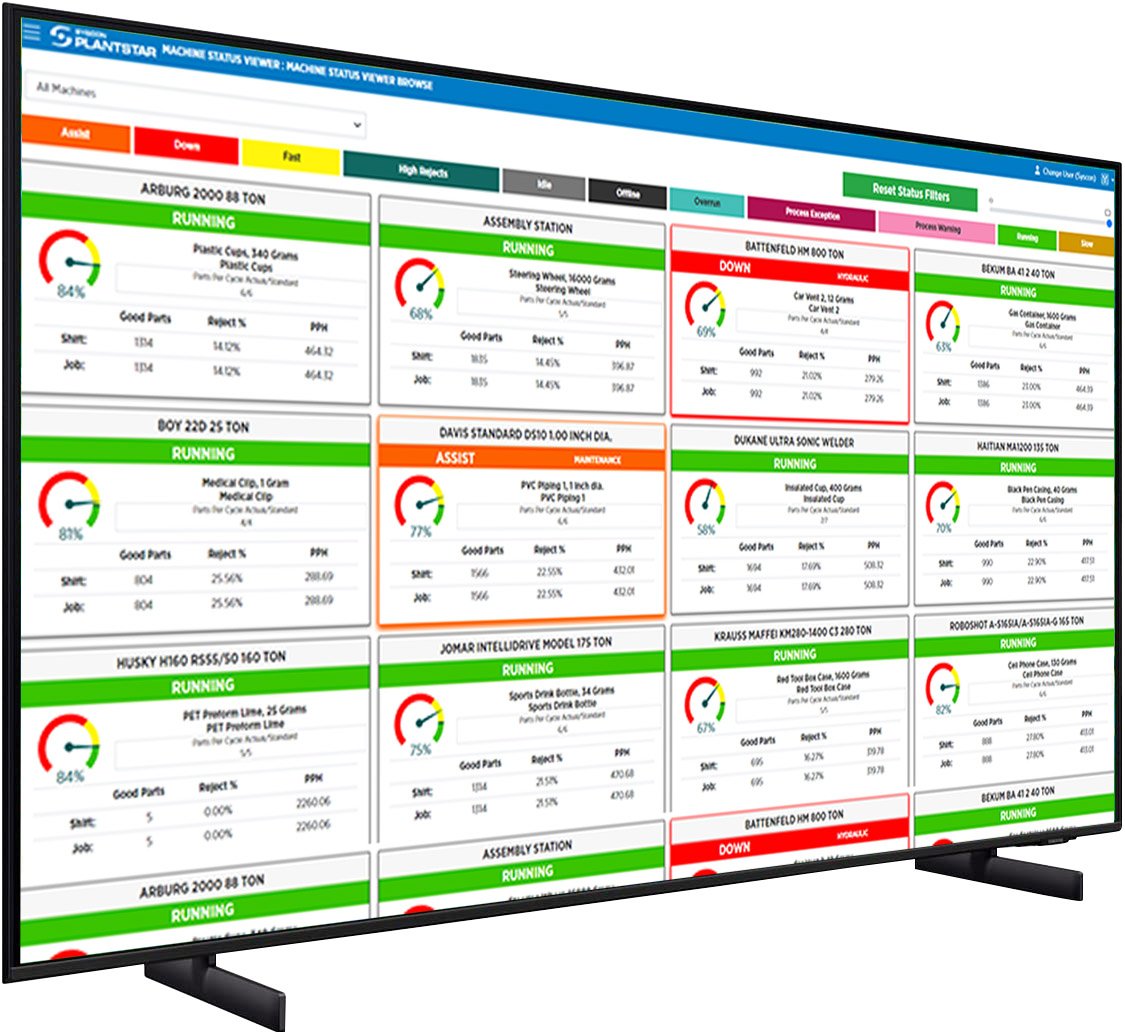SYSCON PlantStar BLOG
Key Considerations When Moving to a Cloud-Based MES
Mar 31, 2023 2:48:00 PM / by PlantStar Team

The cloud is making a major impact on the manufacturing industry. Increasingly, producers are moving key functions, such as their manufacturing execution system (MES) software, from traditional to cloud architectures. Cloud services, a building block in Industry 4.0 facilities, are packaged in a variety of ways. By understanding the advantages the cloud offers, such as simpler deployment, increased scalability, and access to real-time data, you can begin to recognize the specific ways it could improve your organization. When evaluating your options, make sure to find an MES vendor that has strong system capabilities and provides support for process and production monitoring.
Simpler and Less Expensive Deployment
One major advantage of cloud is that it frees manufacturers from the need to purchase and maintain their own computer infrastructure. Instead, they access their vendors’ cloud-based systems, usually at a fixed monthly cost. The vendor supplies the hardware and associated infrastructure, maintaining the operating system, creating strong system security, and regularly updating the application. This gives manufacturers access to state-of-the-art technology without the large up-front cost of purchasing servers.
Real-Time Data
Industry 4.0 technologies like the internet of things (IoT) have been maturing and affecting a growing number of manufacturing functions, giving suppliers access to more performance information. To keep that data, you need an MES vendor whose cloud service features a large storage capacity. Then, you’ll be able to share that information with employees, suppliers, and clients as desired. In most cases, users access the system via any internet-connected device. Performance data is often updated in real-time, giving suppliers insight into what is happening on the shop floor, in the supply chain, and in the back office so they can make adjustments as needed. With a traditional system, manufacturers often don’t have access to this data until a day or two later.
Enhanced Scalability
These days, businesses need to be agile. For example, supply chain issues or increased demand may force a manufacturer to bring on a new source of materials. Making such changes with many traditional MES systems was difficult and time-consuming. A strong cloud solution, on the other hand, is flexible and scalable. In many cases, bringing on new partners, extending the supply chain, or adding system capacity is accomplished with a few keystrokes, enabling businesses to respond quickly and effectively to unanticipated market changes.
Improved AI Insights
Because artificial intelligence requires extraordinarily complex computations, limitations on processing power has limited its uses. The right cloud solution addresses that problem, creating access to more information than ever before. Real-time data processing makes it possible to improve operational performance. Employees can view items like machine performance, shift openings, material availability, and quality performance. The possibilities for improvement are endless:
- A forklift operator can be directed to the most efficient picking path.
- Fuel filters can remotely measure oil quality.
- Commodity resources can be reallocated to reduce waste.
- Shift runs can be changed to maximize personnel use.
Enhanced Security
As systems become more complex, applications create more cybersecurity vulnerabilities. When changes occur quickly, manufacturers’ technical staff often have trouble putting the checks in place to ensure their data remains secure. MES cloud providers are system security experts. As new problems arise, they quickly address them. Because security updates are available to all customers, a manufacturer’s system security often becomes stronger when they move to the cloud.
Support for Production Monitoring and Process Monitoring
MES software provides a range of functionalities. Because manufacturing is a complicated endeavor, executives have to look at their operational data in a few different ways. Production monitoring and process monitoring are ways robust MES software gives manufacturers access to new insights.
- Production monitoring tracks the rate at which parts are produced, helping manufacturers understand the causes of downtime and excess scrap.
- Process monitoring measures manufacturing process variables like pressure, temperature, and time, giving managers insight into how well their manufacturing processes are running, where there is room for improvement, and what changes are needed.
The cloud is gaining popularity among manufacturers because of its ability to streamline processes, increase efficiency, and generate savings. Moving your MES software to the cloud can increase scalability, simplify maintenance, reduce costs, and improve security. When selecting a provider, make sure their system is robust and supports both production and process monitoring. For more tips for improving your production line, subscribe to our blog.

Schedule A Demo
Subscribe to Email Updates
Posts by Topic
- Manufacturing Execution Systems (34)
- manufacturing solutions (16)
- MES 101 (12)
- Industry 4.0 (10)
- improve efficiency (9)
- mes software (9)
- mes solutions (9)
- Plastic Molding (8)
- Plastics Technology (8)
- Shop Floor Production (8)
- MES hardware (7)
- digital transformation (7)
- Reduce scrap (6)
- data-driven-decisions (6)
- lean manufacturing (6)
- process monitoring (5)
- product quality (5)
- Medical molding (4)
- lights-out manufacturing (4)
- manufacturing dashboard (4)
- production monitoring (4)
- Shop Floor Safety (3)
- supply chain management (3)
- ERP integration (2)
- Injection Molding Technology (2)
- defect collection (2)
- machine mes (2)
- process variables (2)
- digital strategy (1)
- labor gap (1)
- throughput (1)


